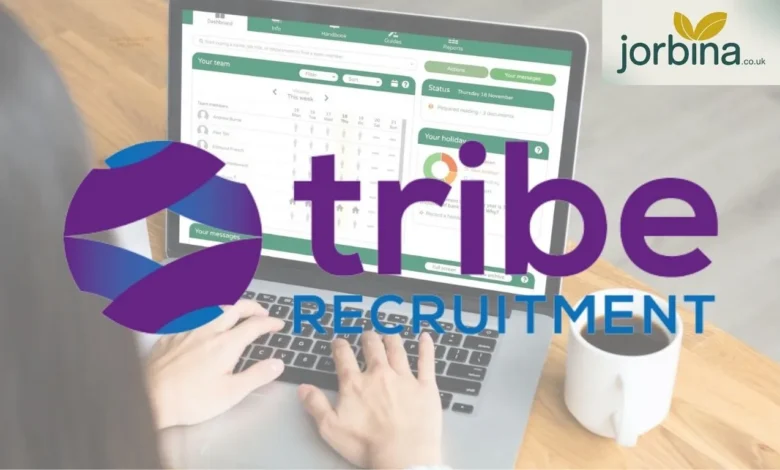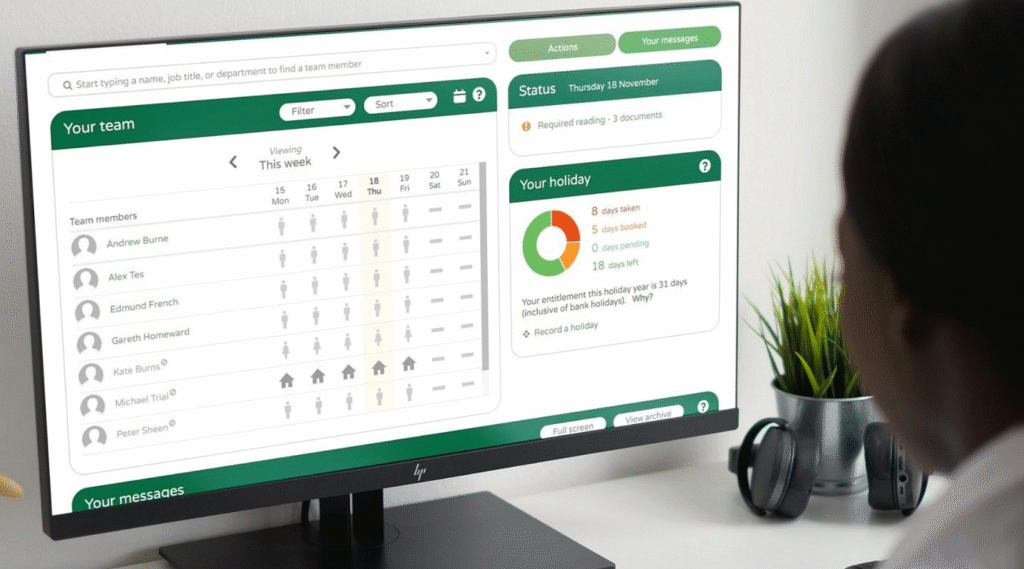Is Tribe HR the Secret to Happier Teams?

Why do some teams feel alive, united, and ready to take on anything, while others drag through every Monday like it’s a chore? What separates a company where people genuinely care from one where everyone just waits for payday? The answer might be simpler than you think. It’s not just perks or higher pay, it’s how you treat your people. That’s where Tribe HR comes in.
Tribe HR isn’t just another HR platform or buzzword. It’s a different way of looking at work, a model that turns employees into a connected community instead of isolated workers. Let’s unpack what that really means, how it works, and why so many companies are shifting toward this approach.
What Exactly Is Tribe HR?
At its heart, Tribe HR is about people over process. Traditional HR departments are built around rules, compliance, and systems. Tribe HR turns that upside down. It focuses on belonging, shared purpose, and connection.
Think of it this way: in a tribe, every person matters. Everyone has a role and feels a sense of ownership in the group’s success. That’s the philosophy behind Tribe HR: creating workplaces that feel human again.
In a company run this way, HR doesn’t just enforce policies. It builds culture. It listens. It brings people together. And when people feel like they belong, performance and happiness naturally follow.
How the Tribe HR Model Works
So how does this actually look inside a real business? Let’s break it down step by step.
Defining Tribe Roles
A Tribe HR system doesn’t eliminate HR roles; it redefines them. The structure becomes flatter, more collaborative, and focused on people, not paperwork. Common roles might include:
- Tribe Leader or Head of People – The person who sets the tone for company culture and ensures alignment with shared values.
- Tribe Connector – Someone who keeps communication flowing and encourages collaboration across teams.
- Tribe Coach – Focused on mentoring, growth, and helping individuals reach their potential.
- Operations Support – Handles logistics like payroll and compliance, but from a people-first mindset.
Each role exists to support community and trust. The result is an HR team that feels less like an authority and more like a partner.
The Tribe Approach to Recruitment
Tribe recruitment is where the philosophy really shines. Instead of hiring people just because they fit a checklist, Tribe HR looks for alignment, values, mindset, and purpose. It’s less about Can they do the job? and more about Do they belong here?
A few hallmarks of tribe-style recruitment include:
- Involving future teammates in interviews
- Assessing cultural and personal fit
- Offering transparent communication during every stage
- Giving timely, honest feedback
That kind of recruitment builds trust before day one. New hires feel welcomed rather than tested, and that creates long-term commitment.
The Tribe HR Team in Action

Typically, a traditional HR department works in secret. Conversely, the Tribe HR team maintains a close relationship with staff members. They participate in daily work activities, attend team meetings, and check in frequently.
Many businesses now have “people partners” integrated directly into departments, as demonstrated by the Tribe HR team in the UK. They actively participate, listen, and assist in resolving issues before they become more serious rather than waiting for staff members to approach them with concerns. This accessibility has a significant impact on trust and morale.
The group might also make use of “Tribe HR team text” systems, which are straightforward messaging platforms that enable instant communication with HR. It keeps the relationship amicable and informal by doing away with formality.
Real-World Example: Tribe HR & Recruitment Services Ltd
A tangible example of this philosophy in action is Tribe HR & Recruitment Services Ltd, a UK-based company that blends HR support and recruitment under one roof.
- Founded: 2019
- Company number: 12024821
- Registered address: Brook House, Church Lane, Garforth, Leeds, England
- Focus: Matching talent with businesses through an ethical, people-first approach.
You can verify these details on Companies House or see their profile on Indeed UK.
Their work goes beyond filling roles. They focus on fit, communication, and culture, the same values that define the tribe model. While an official Tribe HR contact number isn’t publicly listed, their online profiles and recruitment ads usually provide the best contact route for job seekers.
Tribe HR Salary and Pay Culture
Let’s be honest—how you pay people still matters. But in a tribe environment, salary isn’t just about numbers; it’s about fairness and value.
At Tribe HR & Recruitment Services Ltd, for instance, average salaries for key roles include:
- Compliance Officer: around £37,000 per year
- Relationship Manager: about £35,000 per year
Beyond that, many tribe-based organisations offer flexible hours, profit sharing, growth opportunities, and recognition programs. These aren’t gimmicks—they’re ways to show appreciation and reinforce community.
In short, pay is transparent, fair, and connected to both performance and purpose.
Tribe Jobs and Agency Roles
If you’re searching for Tribe jobs or Tribe agency jobs, you’ll notice the name appearing across various recruitment platforms. Many agencies now adopt the “tribe” mindset to stand out in a crowded market.
For example, Tribe Recruitment UK focuses on healthcare, nursing, and support roles. They promote teamwork, communication, and long-term career development, values rooted in the tribe model. To support these people-first approaches, organizations often partner with expert HR outsourcing services based in London to ensure compliant hiring, effective onboarding, and ongoing workforce support.
When agencies operate this way, candidates feel respected rather than processed. It turns job searching into a conversation instead of a transaction.
Why Tribe HR Creates Happier Teams

Here’s where everything connects. Tribe HR works because it focuses on what humans actually need at work: trust, belonging, growth, and purpose. Let’s break that down.
Trust Replaces Control
Traditional HR often operates like a rulebook. Tribe HR replaces control with trust. Employees get more freedom to make decisions, and in return, they take more ownership. That trust builds pride and motivation.
Belonging Beats Bureaucracy
Humans are wired for connection. When work feels personal, people invest emotionally. A tribe model gives employees a sense of identity inside the company, something bigger than a paycheck.
Growth Over Evaluation
Annual reviews are outdated. Tribe HR encourages ongoing feedback, quick check-ins, and real conversations. People learn faster and feel supported, not judged.
Shared Purpose
Tribe organisations rally around a mission. Every employee understands why their work matters. That clarity keeps teams aligned and energised, even during challenges.
Collaboration Without Silos
Tribes are fluid. People work across departments, share knowledge, and support one another. It keeps innovation alive and eliminates the “that’s not my job” mindset.
What to Watch Out For
Of course, no model is perfect. Tribe HR can fail if the foundation isn’t clear. Without strong leadership, tribes risk turning into cliques. Accountability can blur if everyone feels too comfortable.
The key is balance, freedom with structure, empathy with accountability. HR still needs systems and legal compliance, but they serve the people, not the other way around.
Smaller businesses might also need time to scale the model properly. It requires intention, transparency, and consistent communication.
How to Bring Tribe HR into Your Workplace
Thinking about trying this model in your own organization? Here’s a simple roadmap to get started.
- Define Your Tribe Identity
Decide what values, principles, and mission bind your people together. - Reshape HR Roles
Redefine titles and responsibilities so the team focuses on relationships, not just paperwork. - Train and Empower HR
Equip your HR team to act as coaches, listeners, and cultural leaders. - Embed HR Within Teams
Place HR partners directly in departments so they can see issues up close. - Encourage Continuous Feedback
Replace annual reviews with short, regular check-ins. - Align Rewards and Culture
Recognise people not just for performance, but for collaboration, empathy, and initiative. - Review and Adjust
Gather feedback regularly and evolve the system. A tribe is living, it grows and adapts.
Over time, you’ll start to feel the shift: more trust, better communication, stronger teams.
FAQs About Tribe HR
Who are Tribe HR?
Tribe HR refers both to a mindset and, in some cases, a company. Philosophically, it’s about running HR as a community builder rather than a rule enforcer. In the UK, Tribe HR & Recruitment Services Ltd operates under this principle, connecting people and employers through shared values.
Why is HR calling me?
HR might call to discuss a job application, verify details, schedule an interview, or share feedback. Sometimes, it’s just to check in after a meeting. In a tribe-based environment, HR calls tend to be more conversational and supportive.
Which HR roles are highly paid?
Senior HR roles like HR Director, Head of People & Culture, and Compensation Lead tend to earn the most. Pay depends on experience, company size, and industry. Many tribe-based firms also tie bonuses to team performance.
Is there a company called Tribe in the UK?
Yes. There’s Tribe HR & Recruitment Services Ltd, based in Leeds, as well as Tribe Recruitment UK, which focuses on healthcare and agency staffing.
Do HR call to reject?
Yes, sometimes. While many companies send automated rejection emails, good HR teams, especially those following the tribe mindset, prefer a quick call to provide closure and encourage future opportunities.
The Takeaway
Tribe HR isn’t a passing management trend. It’s a shift toward something companies have been missing for years, a real human connection at work.
When employees feel like part of a tribe, not just a payroll number, everything changes. They show up with energy. They help each other. They stay longer.
The bottom line: Tribe HR may not be a secret anymore, but it’s definitely a solution. Whether you’re in a startup or a large company, building a tribe inside your workplace can turn a group of employees into a true community, and that’s where happiness begins.



